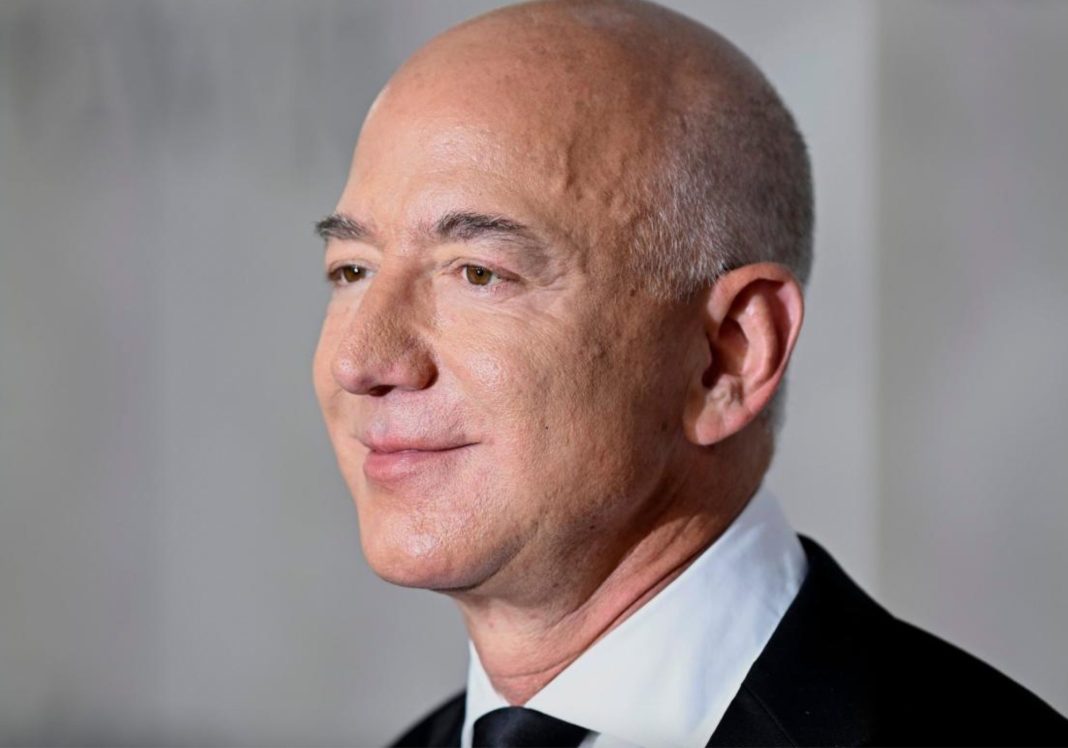WASHINGTON DC, USA – In a rare op-ed published Monday, The Washington Post’s owner Jeff Bezos sought to explain his decision to discontinue the paper’s presidential endorsements—a shift that has upended a nearly 40-year tradition and sparked fierce controversy both inside and outside the newsroom.
The abrupt move has led to an unprecedented wave of resignations, with three senior editorial board members departing and thousands of loyal subscribers cancelling their memberships.
“Presidential endorsements do nothing to tip the scales of an election,” Bezos asserted in the op-ed, positioning the decision as an act of journalistic integrity rather than political calculation.
“No undecided voters in Pennsylvania are going to say, ‘I’m going with Newspaper A’s endorsement.’ None. What presidential endorsements actually do is create a perception of bias, a perception of non-independence. Ending them is a principled decision, and it’s the right one.”
The billionaire Amazon founder’s defense comes amid significant blowback from prominent journalists, former executives, and readers.
Critics have decried the timing—mere days before one of the most hotly contested elections in recent memory.
David Hoffman, a Pulitzer Prize-winning editorial writer and longtime Post board member, resigned Monday, describing the decision as a form of “dangerous silence.”
“I cannot sit here any longer on the editorial board and write those editorials while we ourselves have given in to silence,” Hoffman told CNN, voicing his unease over what he perceives as a threat to democratic principles.
“We face a terrible, terrible choice, I believe, a looming autocracy. I don’t want to be silent about it.”
The internal dissent is only part of the fallout.
High-profile subscribers, some of whom have been with The Washington Post for decades, have publicly cancelled their subscriptions, citing a loss of faith in the paper’s leadership.
The Post’s former executive editor, Marty Baron, who guided the paper through its Pulitzer-winning coverage of the January 6 Capitol attack, criticised the decision as a dangerous move to appease a volatile political climate.
“If their philosophy is that readers can make up their own minds on the big issues, then don’t run any editorials,” Baron told CNN’s Michael Smerconish.
“But the fact is they only decided not to run an editorial in this one instance 11 days before the election.”
Bezos’s op-ed also addressed the recent meeting between Trump and Blue Origin, the space exploration company he founded, that has stirred speculation about potential quid pro quo.
“I would also like to be clear that no quid pro quo of any kind is at work here,” Bezos wrote.
“Neither campaign nor candidate was consulted or informed at any level or in any way about this decision. It was made entirely internally.”
Though Bezos maintained he was unaware of the meeting prior to the announcement, the timing has only fanned skepticism.
“I sighed,” he noted, upon hearing of the encounter, “because I knew it would provide ammunition to those who would like to frame this as anything other than a principled decision.”
Yet Bezos’ explanation has done little to quell a growing sense of unease among Post veterans and columnists.
In an open letter, signed by nearly two dozen Post writers, staff members denounced the decision as “an abandonment of the fundamental editorial convictions of the newspaper that we love.”
The uproar has intensified what many see as a defining moment for The Washington Post.
Bezos, in his op-ed, positioned his decision as part of a larger struggle to safeguard The Post’s integrity against a backdrop of misinformation and sensationalism.
“While I do not and will not push my personal interest, I will also not allow this paper to stay on autopilot and fade into irrelevance—overtaken by unresearched podcasts and social media barbs—not without a fight,” he wrote, “The stakes are too high.”
For Bezos, the decision to end endorsements underscores his belief in the power of neutrality, but critics argue it risks weakening The Post’s voice in an era of political and social turbulence.
As the election looms, the debate over journalistic responsibility versus neutrality highlights The Washington Post’s delicate balancing act as a media powerhouse navigating its legacy and future under Bezos’s guidance.







